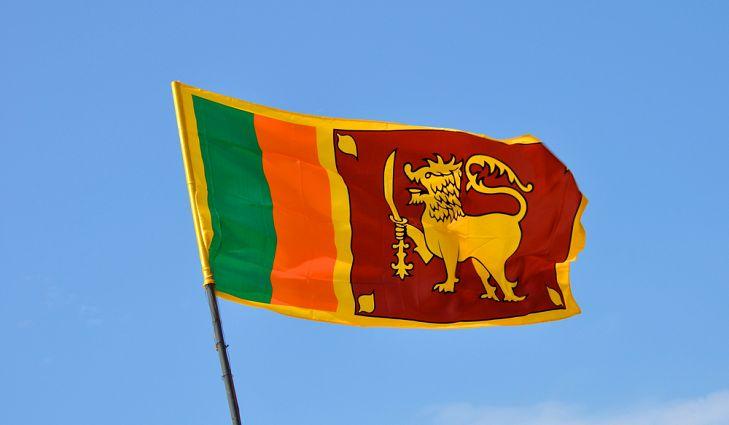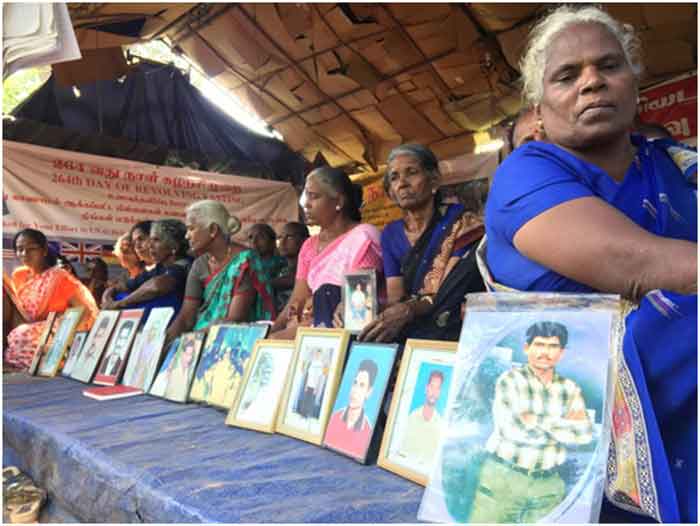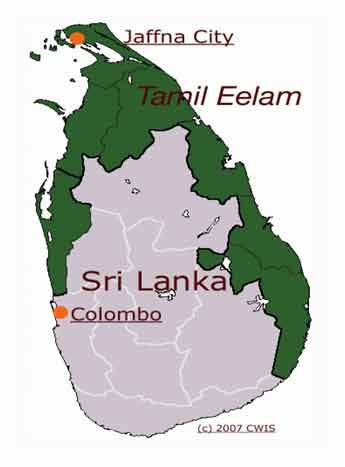Global Kairos for Asia-Pacific Palestine Solidarity (GKAPPS) calls for respect for human rights, an end to political instability and, the re-building of Democracy in Sri Lanka

Global Kairos for Asia-Pacific Palestine Solidarity (GKAPPS) is a collective of Asian Christian Theologians working in partnership with scholars and human rights activists of different faiths to express our radical solidarity with the people in Palestine in their struggles to overcome the decades-long colonial/apartheid regime that deprives them of their fundamental human rights, including the right to life.
At a conference held from 27th to 30th April, GKAPPS on the theme “Embracing Solidarities by sharing stories of struggle against Empires”, we also listened to narratives from around Asia and Pacific. Each of the narratives was gripping and confirmed the fact that there were wide ranging injustices in the region too, not identical to, but of similar intensity, in many cases to that of the Palestine situation. By drawing the comparisons, we saw the imperative for mutual solidarity between Asian and Pacific struggles, and the Palestinian struggle for liberation from apartheid, colonialism, and racism.
We were particularly impacted by the description of the ongoing situation in Sri Lanka which is punctuated by the wide-spread public expression of anger and waves of people’s protests over the demoralizing economic crisis in the country. The powerful anti-regime movement that has grown also stridently articulates perceptions and suspicions of massive plunder of public resources by the regime, especially by the family of the President and Prime Minister and their business associates.
GKAPPS notes that the Sri Lankan government has manufactured its own crisis from careless handling of the economy by borrowing outside of its capacities to repay and leaving the burden of repaying the debt to the common people. There is indication of improperly planned, heavy public investment in large scale infrastructure projects at a time when the economy is fragile after two years of reduced economic activity due to the COVID-19 pandemic. There is much suspicion among citizens that it was politicians’ greed for business commission payments that accompany such costly projects that led to such inappropriate investments.
There is indication that the country’s already reduced foreign exchange reserves were depleted without constraint in the first two years of the current regime of President Gotabhaya Rajapaksa. Reports from Sri Lanka indicate that the regime’s own popular voting constituencies have joined the main Opposition political parties in expressions of spontaneous, wide-spread public dissent against the Government of Prime Minister Mahinda Rajapaksa and against his brother, President Gotabhaya Rajapaksa.
Public life has been severely disrupted on the one hand by the mounting economic and livelihood hardships and, on the other, by the waves of anti-government protests by all sectors of society across the country.
The world has taken note of the widespread public consensus against the regime. The Sri Lankan government’s own top leaders, several of whom are members of the Rajapaksa family or relatives, seemed to have realized the intensity of public animosity towards them and some have actually resigned from office. Meanwhile, close associates of the regime, long suspected of joining in the plundering of public resources in addition to helping forcibly suppress political dissent, have already fled the country, thereby indicating plausible guilt.
Several of the Rajapaksa family’s close associates are already under criminal investigation for suspected misappropriation of public finances, irregular circumventing of procedure for personal financial gain or the gain of friends and also for acts of human rights violations.
GKAPPS is of the view that the needs and interests of democracy can be better met if action is taken to investigate the many accusations of massive corruption, disastrous misgovernance and human rights violations.
GKAPPS also notes with disquiet that the debt-heavy economy has led to shortages of food, fuel and medicines and prolonged power cuts due to inability to import fuel for thermal power production. An elite-oriented economy has left Sri Lanka virtually pauperized. The rising cost of food and medicine has left ordinary citizens extremely vulnerable to malnutrition and drastic health conditions. There is fear of famine due to food shortages as well as high food costs.
Many experts as well as civil society bodies are concerned that recovery measures done under supervision of the International Monetary Fund (IMF) and the World Bank will involve social austerity measures, principally, reducing public welfare measures that normally help sustain Sri Lanka’s currently high health and social benefits standard.
Spurred by the near-consensual political opposition, the regime has already removed the personalities under most suspicion of corruption and autocratic rule. The Prime Minister, Finance Minister and others have left their post and many are in hiding if they have not fled abroad. By attacking peaceful protesters with violence, the government is disallowing the functioning of a robust democracy in which human rights as well as public confidence in governance must be cornerstones.
GKAPPS also notes the call from most sections of the citizenry for a complete renewal of Sri Lanka’s constitutional framework, especially the abolition of the executive presidential system which has enabled the concentration of power in individuals. This concentration of power among a few has enabled the flourishing of nepotism and dominance by a single family, the Rajapaksas. It has also facilitated corruption, authoritarianism and the violent suppression of people’s movements, especially movements for ethnic equality and rights of minorities.
GKAPPS expresses its solidarity with the people in Sri Lanka who suffer the agony of the political chaos and calls on the government of Sri Lanka to:
- Respect peaceful protests and allow the sentiments of the people on the street to be heard;
- Carry out a meaningful and inclusive dialogue with all parts of Sri Lankan society to address the political and socio-economic challenges faced by the people;
- Move quickly in positive response to the people’s call for an end to the system of executive presidency and revive a true constitutional separation of powers and oversight of vital public affairs by independent commissions;
- And, on the basis of genuinely representative and inclusive government, to chart the path to economic recovery complemented by welfare measures to avoid a humanitarian crisis.
Rev Dr. Huang Po Ho Dr. (Sr.) Shalini Mulackal
Moderator, GKAPPS Co-Moderator, GKAPPS

















































